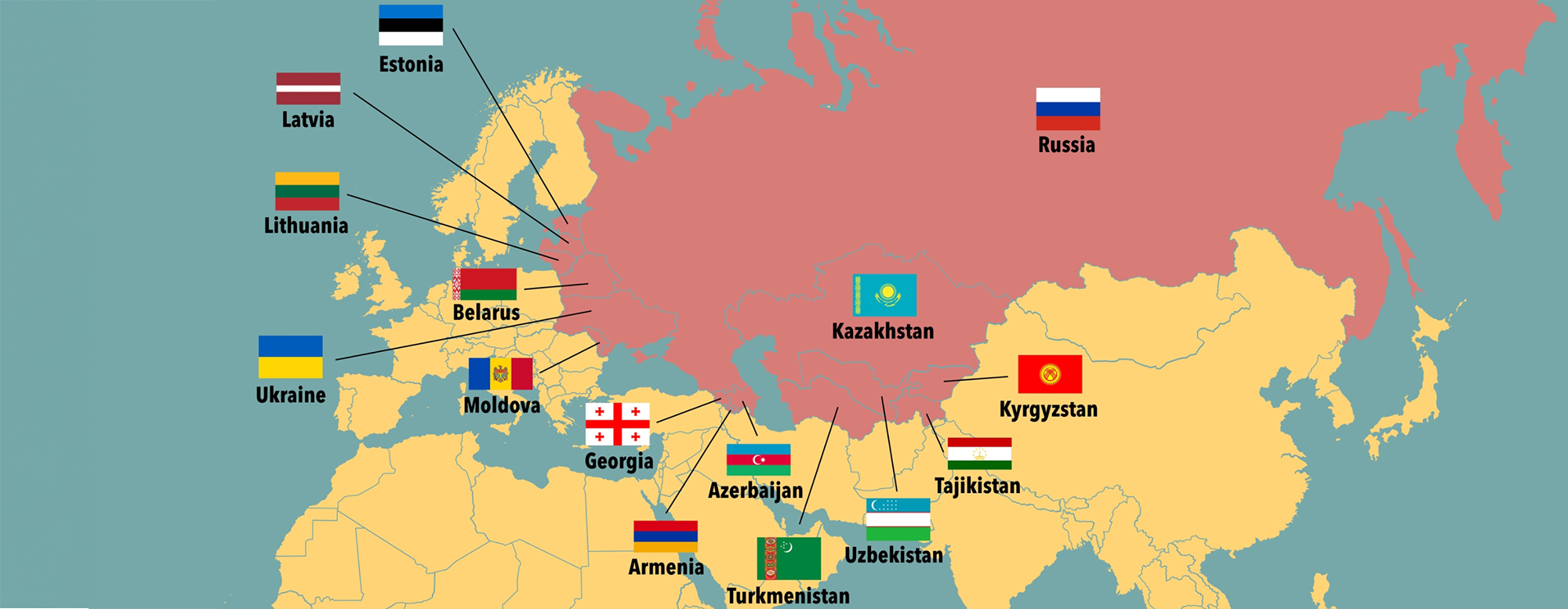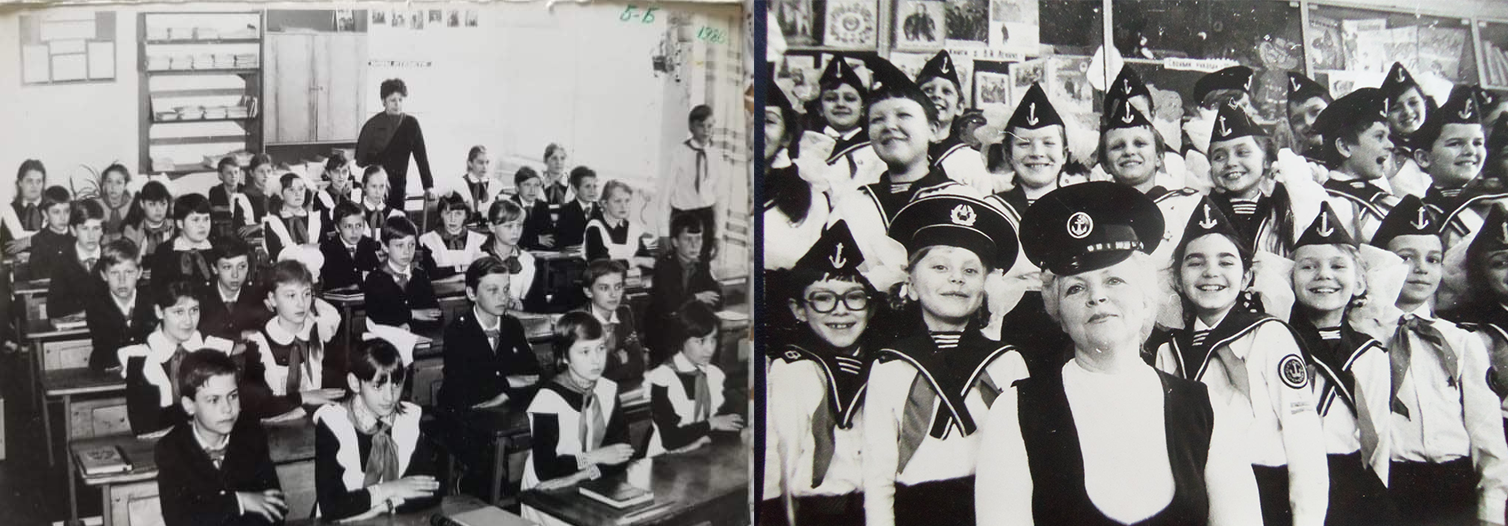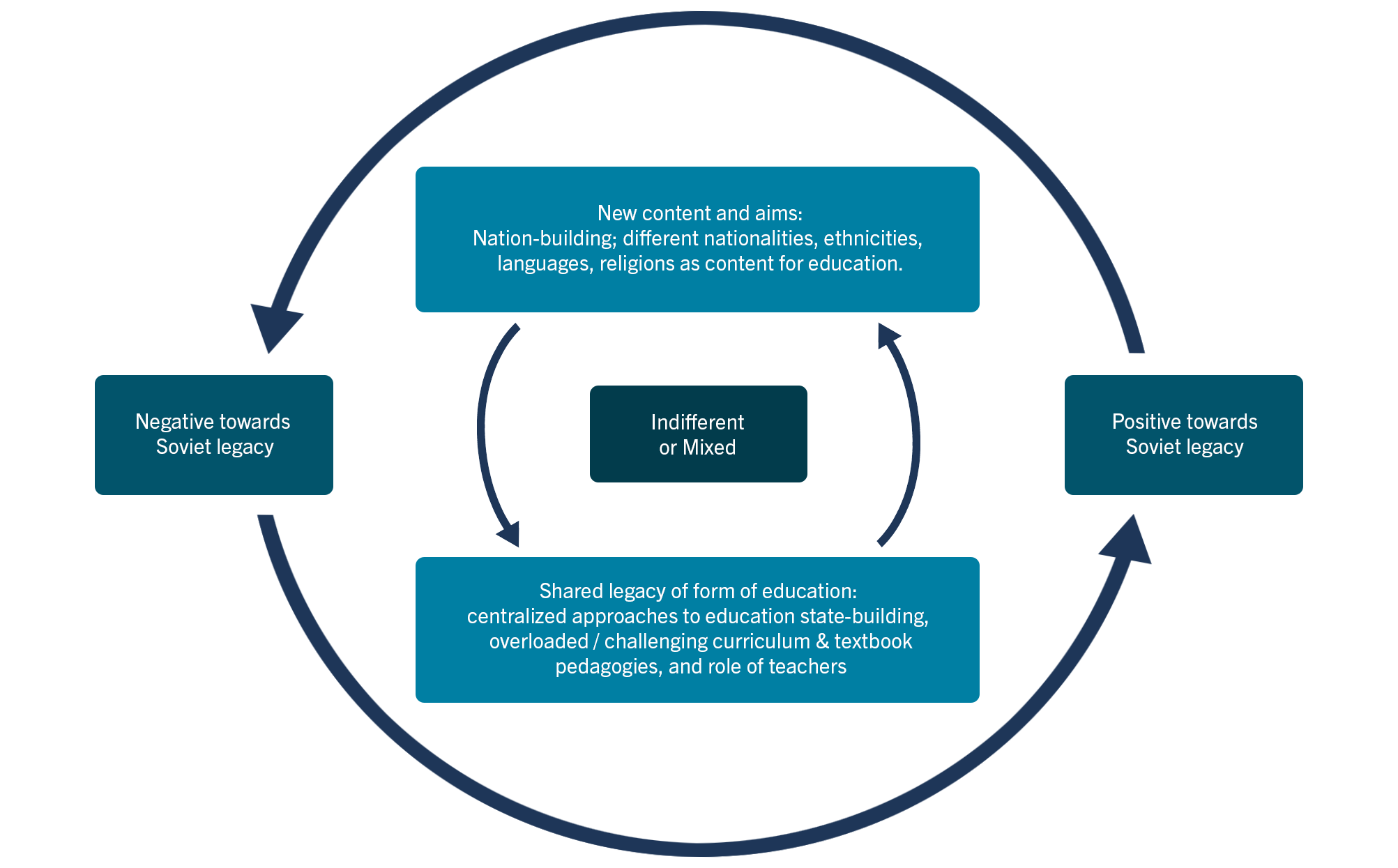Post-Soviet Concept

Post-Soviet Concept
The Soviet Union, formerly the largest country in the world, was a remnant of the Russian empire and consisted of 15 republics that stretched from the Baltic Sea and Polish borders to the shores of the Pacific Ocean, as well as from the Northern Sea and tundra to the mountains and deserts of Central Asia. In 1991, this largest multinational and multicultural country that had been experimenting communist ideology collapsed. The collapse resulted in many outcomes, starting from freedom to civil and cross-country wars and continued transition to different, non-communist forms of statehood. The break-up of the Soviet Union allowed people to migrate to the global north or west, as skilled specialists, or as refugees fleeing wars, religious, ethnic, linguistic, and other forms of repressions.
What is the post-Soviet space? We can say that is a geographic horizon of shared experiences, whether viewed negatively or positively, of countries that had been taken into the USSR via revolution, occupation and some earlier in the Russian empire. All were influenced by their inclusion in the Soviet state, and thus are called “post-Soviet”. There are mixed evaluations and reevaluations of Soviet experience in the post-Soviet space in the now independent states, ranging from anti- to pro-Soviet, and indifference. Aspects of the highly centralized form of Soviet educational organization may in some cases persist although new more national content may fill them. The study explores to what degree students, and parents from the “post-Soviet” countries respond to experiences of education in Canada, in similar ways, in distinct ways according to their country of origin and home languages, or according to their role as student or parent.

Post-Soviet “Space” and “Experience”
Geographic and political definition based on experience after USSR in Independent states may show tensions in attitudes towards Soviet Legacy. Despite continuities that exist alongside changes.
